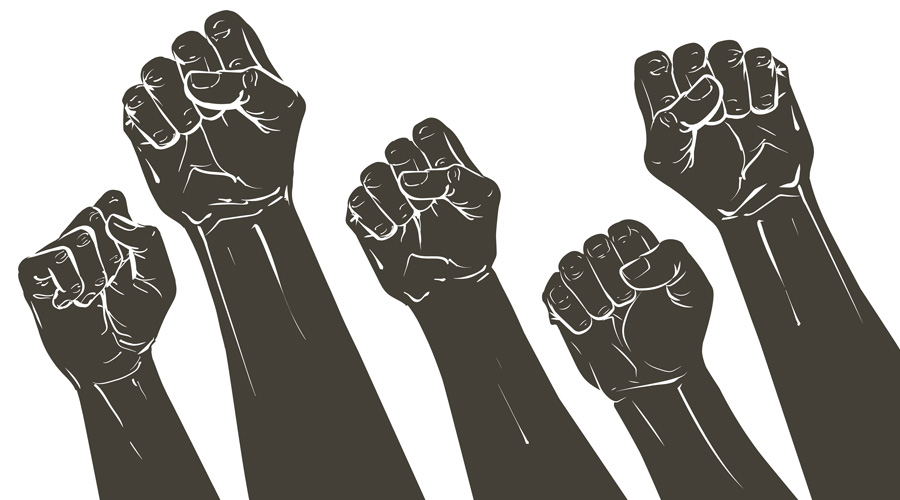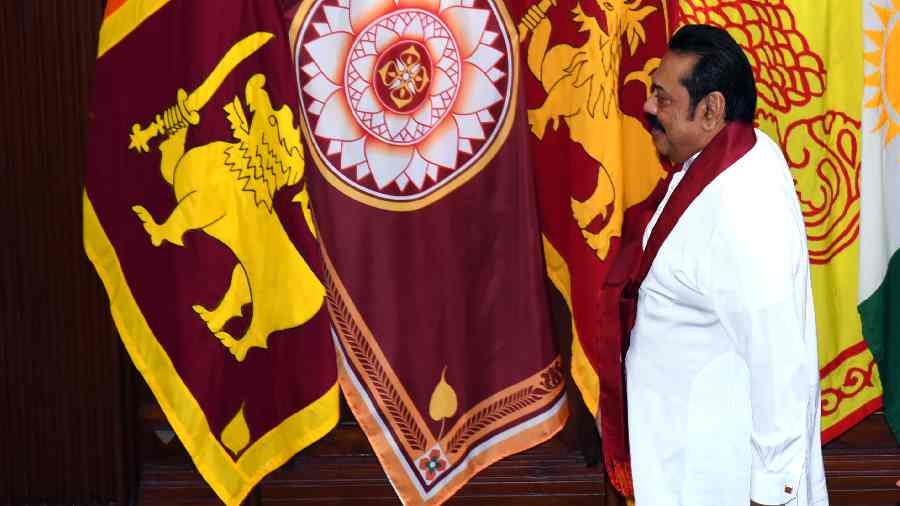At least 23 people were injured as supporters of Sri Lankan Prime Minister Mahinda Rajapaksa on Monday attacked anti-government demonstrators gathered at a protest site near his official residence to demand for the premier's resignation, prompting authorities to deploy Army troops to bring the situation under control.
The violence occurred following reports on Monday that Mahinda Rajapksa may offer to stand down as Prime Minister, as pressure mounts on the embattled government led by his younger brother and President Gotabaya Rajapaksa to form an interim administration to overcome the worst economic crisis facing the country.
Rajapaksa, 76, under intense pressure from within his own Sri Lanka Podujana Peramuna (SLPP) ranks to resign, was gathering his supporters to apply counterpressure not to stand down.
"While emotions are running high in #lka, I urge our general public to exercise restraint & remember that violence only begets violence.
The economic crisis we're in needs an economic solution which this administration is committed to resolving," Prime Minister Mahinda tweeted.
Earlier, Rajapaksa told his thousands of supporters gathered outside his house that nothing would deter him.
I am so used to seeing protests and agitations, nothing would deter me. I am experienced enough to face any situation," Rajapaksa said.
A tense situation prevailed as a group of supporters of Prime Minister Mahinda Rajapaksa attacked the protesters outside the 'MainaGoGama', a protest site near Temple Trees, the official residence of the Prime Minister, Daily Mirror, an online news platform, reported.
The tents opposite Temple Trees were dismantled by a mob, Lanka First, a leading news network, reported.
Police used water cannons to disperse the unruly SLPP protestors who are at the Galle Face green protest site, Hiru News website reported.
At least 23 people were injured in the violence.
The police formed a human chain to prevent the protesters from entering GotaGoGama.
However, the mob pushed their way past the police human chain and attacked GotaGoGama.
A military contingent was deployed to the protest site to assist law enforcement.
Opposition leader of the Samagi Jana Balavegaya Sajith Premadasa visited the GotaGoGama protest site to assess the situation.
The Opposition sources said a group had also attacked Premadasa and his colleagues as he arrived at the presidential secretariat protest site.
It accused Mahinda Rajapaksa of instigating his supporters. Later, the government deployed Army troops to bring the situation under control.
A curfew was enforced in Colombo with immediate effect after the violence.
The 'MainaGoGama' protest site was set up demanding the resignation of Prime Minister Mahinda Rajapaksa. Peaceful protesters had been camped here for 31 days, demanding the resignation of the president.
Hundreds of supporters of the Prime Minister have been brought in buses while some others marched to the Temple Trees to show support to the premier against the call for his resignation, Colombo Page news portal reported.
The demonstrators insisted that Rajapaksa remain in office and not resign.
The local government representatives and parliamentarians supporting the Premier have also been arriving at the Temple Trees.
The Bar Association of Sri Lanka called for immediate action to prevent protesters from being attacked.
The lawyers' body said it has received reports of a gang of persons armed with poles and clubs marching from Temple Trees towards Galle Face. They have attacked anti-government protesters opposite Temple Trees.
"There will be grave repercussions by the inaction of the government and the police to deal with this situation," it said in a statement.
The Rajapaksa brothers- President Gotabaya Rajapaksa and Prime Minister Mahinda Rajapaksa have so far defied calls for their resignation.
In a special Cabinet meeting on Friday, President Gotabaya Rajapaksa declared a state of emergency with effect from Friday midnight. This is the second time that an emergency was declared in Sri Lanka in just over a month as the island nation was in the grip of the worst economic crisis.
Sri Lanka is currently in the throes of unprecedented economic turmoil since its independence from Britain in 1948.
The crisis is caused in part by a lack of foreign currency, which has meant that the country cannot afford to pay for imports of staple foods and fuel, leading to acute shortages and very high prices.
Thousands of demonstrators have hit the streets across Sri Lanka since April 9, as the government ran out of money for vital imports; prices of essential commodities have skyrocketed and there are acute shortages in fuel, medicines and electricity supply.
 Thursday, 23 January 2025
Thursday, 23 January 2025











